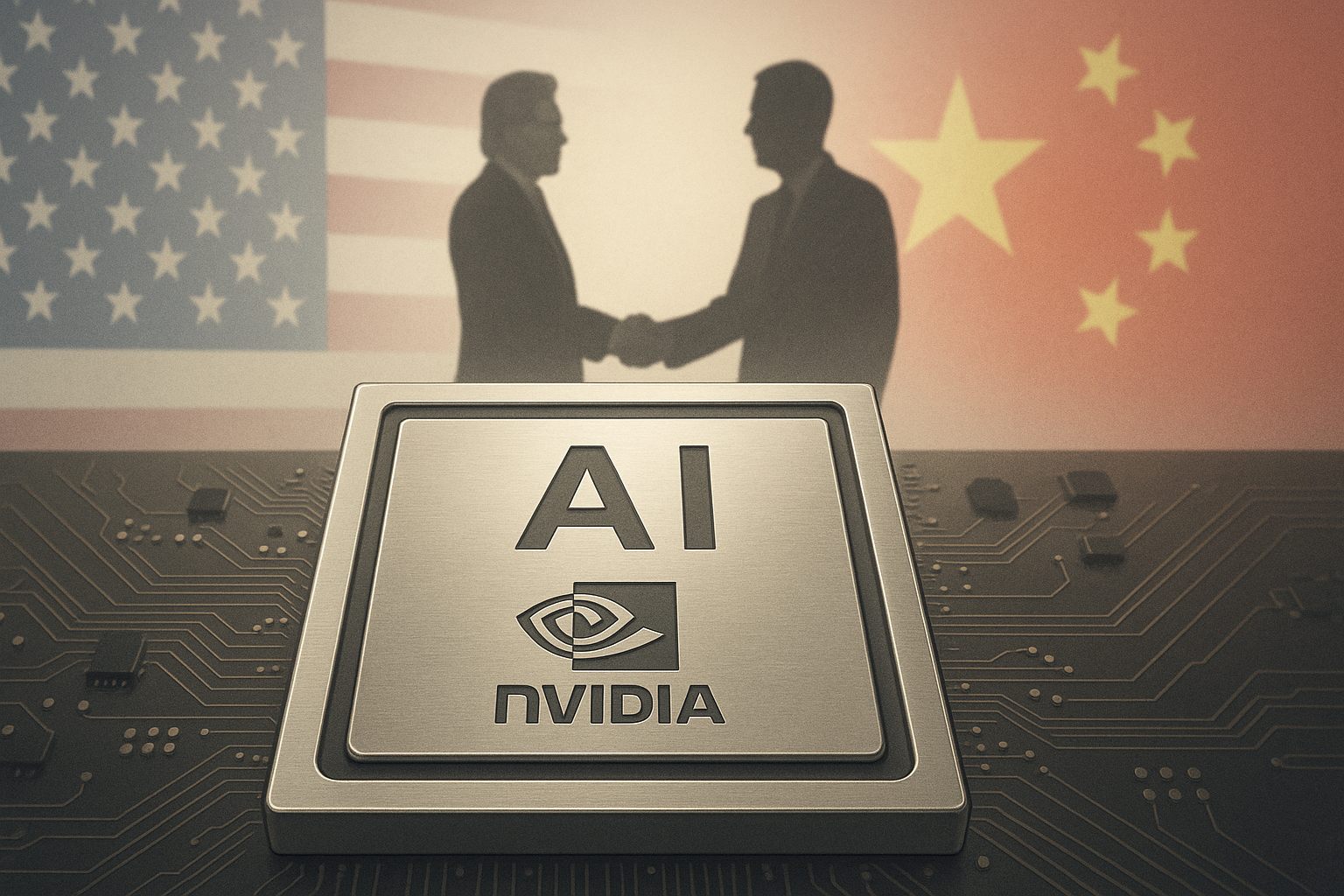In what can only be described as interesting timing, the U.S. has suddenly decided to allow Nvidia to export certain AI chips to China—a move that comes remarkably close on the heels of CEO Jensen Huang's meeting with President-elect Donald Trump.
The Commerce Department is now permitting Nvidia to sell its H20 chip to Chinese customers. This isn't just any chip, mind you. It's specifically a watered-down version of Nvidia's powerhouse AI processors, designed explicitly to comply with export controls while still being attractive enough for the Chinese market to bother purchasing.
I've been tracking U.S.-China tech relations for years, and this development represents a fascinating shift in the tech cold war that's been brewing between the two superpowers. The Biden administration has spent the better part of two years ratcheting up semiconductor export restrictions, attempting to maintain America's technological edge in artificial intelligence.
Then Huang meets with Trump and—wouldn't you know it?—export permissions suddenly materialize.
Let's put this in context. Nvidia has been caught in an increasingly uncomfortable position as tensions between Washington and Beijing intensified. China represents roughly a quarter of their data center business—a segment that has been absolutely crucial to the company's meteoric rise in value. When stricter export controls kicked in, Nvidia's response was predictable: engineer new chips that would thread the needle between satisfying Chinese customers and appeasing American regulators.
The H20 is exactly that—a compromise product. Think of it as selling a sports car with a deliberately underpowered engine. It goes, but not quite as fast as the engineers would prefer.
What's particularly striking here (and I've spoken with several industry analysts who agree) is the timing. The Biden team has been constructing a comprehensive semiconductor containment strategy, only to see potential exceptions emerge during the transition period. Is this coincidence, political calculation, or just good old-fashioned business pragmatism?
"This represents the fundamental contradiction in our approach to China," a former Commerce Department official told me yesterday. "We want to maintain technological superiority while allowing American companies to profit from the very market we're trying to constrain."
The irony is thick enough to cut with a knife. Trump, who kicked off much of the tech hawkishness toward China during his first term, may now be signaling a more nuanced approach—or perhaps just responding to the lobbying power of a company whose market capitalization exceeds the GDP of most nations.
Look, this doesn't mean the tech cold war is over. Far from it. But it does suggest that export controls will remain negotiable rather than absolute. The boundary between what's acceptable and what's restricted will continue to be drawn in pencil, not permanent marker.
For Nvidia shareholders (and I'm not one, for disclosure's sake), this creates a modestly improved outlook, though questions about the company's stratospheric valuation remain. For policymakers, it highlights the challenge of maintaining a coherent strategic approach when commercial interests exert such powerful influence.
Will this be a one-off accommodation or the beginning of a broader recalibration? That remains to be seen. Until then, semiconductor companies will continue their elaborate compliance dance—developing products specifically designed to navigate regulations that shift with the political winds.
In the end, this episode serves as a reminder that at the intersection of technology, commerce, and geopolitics, even the most carefully crafted policies can change faster than a chip's processing speed.




